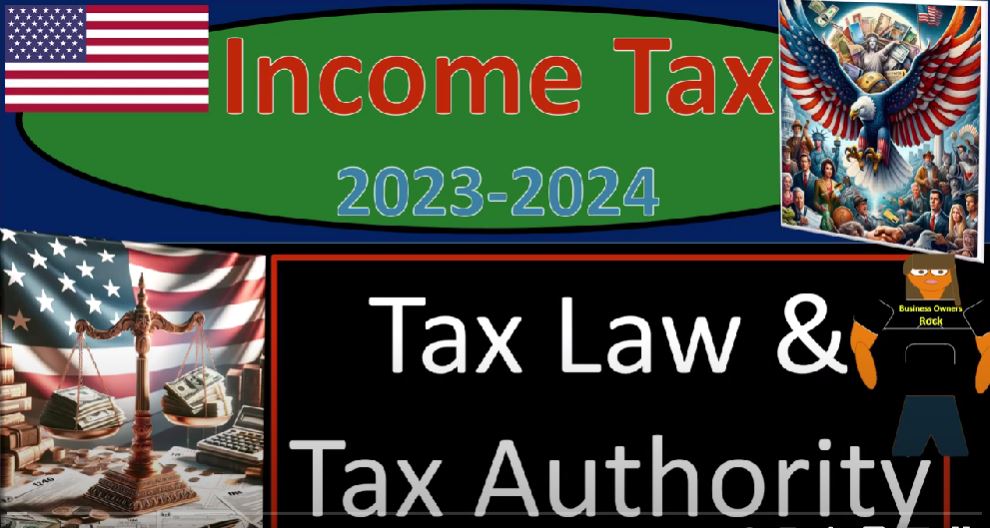A general overview of the hierarchy of authority in income tax preparation for the tax years 2023 and 2024. Understanding the layers of authority is crucial for tax preparers and taxpayers alike, as it helps navigate the complexities of tax law and minimize tax liabilities legally. Let’s break down the key points discussed in the blog.
Statutory Sources: The Law Itself
- Internal Revenue Code (IRC): The tax code is the primary source, and if a position is explicitly stated in the code, it’s considered black and white.
- 16th Amendment to the Constitution: Establishes Congress’s authority to levy income taxes.
Administrative Sources: IRS Guidance
- Treasury Regulations: Provide detailed rules and guidance on interpreting the tax code.
- Revenue Rulings and Procedures: Offer official interpretations by the IRS on specific tax matters.
- Private Letter Rulings: Individualized guidance provided by the IRS to specific taxpayers.
- IRS Notices: Announcements that clarify or provide guidance on tax issues.
Judicial Sources: Courts and Precedents
- Tax Court, US District Court, US Court of Federal Claims: Courts where tax-related cases are heard.
- Precedents: Court decisions create a track record, establishing interpretations that influence future cases.
Practical Application for Tax Preparers
- Low-Income Tax Returns: Typically involve compliance and established positions, such as dependency issues or divorce-related matters. Focus is on efficiently processing returns with well-defined guidance.
- High-Income Tax Returns: Involves more research on specific cases, potentially taking positions in gray areas of the law. Taxpayers may pay more for the assurance that the CPA firm will support them in case of an audit.
Challenges and Considerations
- Tax Code Complexity: Even though the tax code is extensive, it may not cover every scenario, leading to gray areas and disputes.
- Evolution of Tax Law: New laws may lack a clear interpretation initially, requiring practitioners to rely on administrative guidance and court precedents.
- Role of Tax Preparers: While lower-income tax preparers focus on compliance, higher-income firms may engage in more extensive research and provide support during potential audits.
- Government and Taxation Debate: The broader discussion includes the size and efficiency of government and the appropriate level of taxation.
Conclusion
As tax preparers gear up for Income Tax 2023-2024, understanding the hierarchy of authority – from the tax code to court precedents – is crucial. Navigating the complexities requires a balance between established positions, administrative guidance, and potential legal challenges. Whether processing basic returns or dealing with intricate tax situations, staying informed and adapting to evolving tax laws is essential in achieving financial goals while minimizing tax obligations within the bounds of the law.

